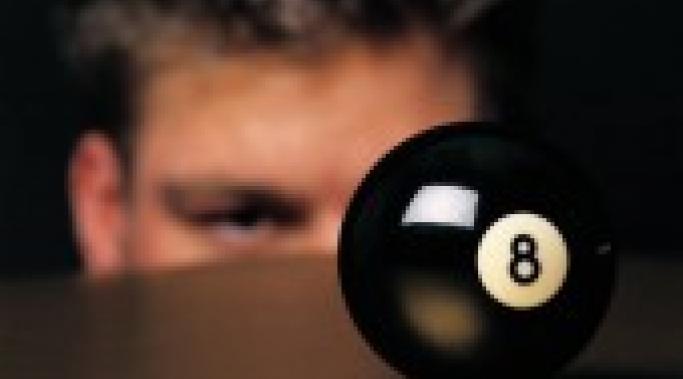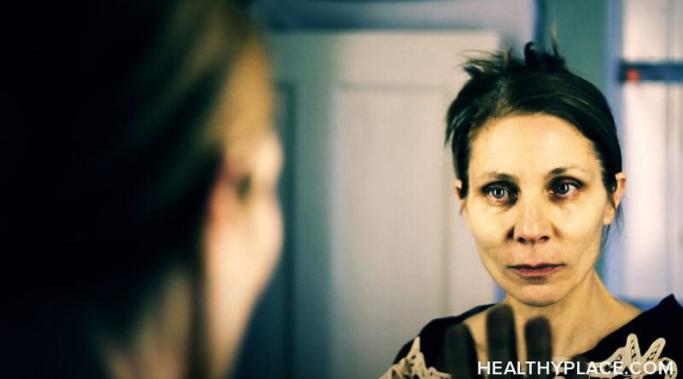Bipolar is a disease that takes over your brain – well, parts of your brain anyway – and these affected parts of your brain change your psychology right along with them. So once when you felt “normal” or let’s say, average, you now feel utterly destroyed. Your emotions are altered thanks to the attack on your brain.
And what’s worse about this is that bipolar or depression fundamentally changes who you think you are at that moment. If you used to be a fun-loving, happy-go-lucky sort, in a depression, nothing could be farther from the truth. When manic, all your thoughtful, careful ways become things of the past. You can barely identify with the person you were pre-mood.
And perhaps even worse than all that is that some part of you sees this dissonance. You know that who you are at that moment isn’t who you really are. It’s like someone else, a crazy person, moved right into your head and body and coopted your life. Bipolar snatched your body and brain.
Understanding Mental Illness
Guilt – noun – a feeling of responsibility or remorse for some offense, crime, wrong, etc., whether real or imagined.
And people with a mental illness feel guilt over a lot of things. I hear from people every day who feel guilty about their illness, what they’ve done, what they haven’t done and how their mental illness and their behaviors due to it affect others (Feeling Guilty Because You Have a Mental Illness).
But mostly I consider guilt a waste of time in mental illness recovery.
I’m sitting on my red, plush couch in my living room and I have started crying. Tears well in my eyes at first while I try to convince them not to roll down my face and splash the back of my glasses. As usual, the tears don’t listen and soon my cheeks and lips and chin are wet with saline. I take off my glasses and put them on the wenge coffee table and my head falls into my hands. Loud crying now, choking sobs wrack my body as I feel the pain of illness that I had been pushing away for so long beat me once again.
And I wonder – will it get better?
People self-harm for many different reasons and self-harm in and of itself is not a symptom of bipolar disorder. But like many people with extreme pain in their lives, many people with bipolar disorder do self-harm. I have been one of them. And as sure as I’m sitting here I can tell you, stress precipitated most of the self-harm.
This was a question recently asked of me, “can people with a mental illness, like bipolar disorder, live alone?”
The answer to me was obvious – yes! Absolutely. Of course a person, even with a serious mental illness, can live alone.
But then I thought about it for a moment and maybe it’s not that simple. Maybe there are some tools that facilitate living on your own.
Self-talk is something we all do. In psychology they call it intrapersonal communication – or communication with oneself. It could be the voice of your mother in your head tell you to “take a jacket” or the voice of an old lover telling you that “you’re fat” or simply a recitation of the lyrics to YMCA for an hour at a time. However you do it, we all have an inner voice no matter how unconscious it may be.
As I work, I battle the stigma around mental illness. It feels like often, all day, every day, it's the only thing I do. But I do it because I feel it's important. I feel it matters. I feel it changes people's lives.
And one of the misconceptions I've heard multiple times recently is about bipolar and mental illness diagnosis. That by accepting a diagnosis of a mental illness this somehow removes the responsibility from the individual for their own wellness. That, somehow, a mental illness diagnosis makes the patient weak because now they are looking for someone to "save" them or "cure" them.
Well nothing could be farther from the truth. Getting a mental illness diagnosis is only the first step in what a patient must do in order to recover.
I've been studying mental illness for a long time and while I knew the answer to this question, I couldn't really have told you why. This is mostly because I haven't done a lot of work on personality disorders, but I have had occasion to learn more about them recently.
No, bipolar disorder is not a personality disorder, and here's why.
Happy new year to everyone. Thanks to all for joining me for a wonderful year of information, interaction and debate. I have learned a lot and I hope you have too. But in case you missed it, here are the top ten articles people were reading from Breaking Bipolar last year:
Recently, someone who was new to the world of bipolar disorder asked me if there was a cure for bipolar disorder or if he had to live like this forever. I had to, of course, tell him there is no cure. I felt like I was telling him his dog was about to die. I felt like knowing this, he might give up.






